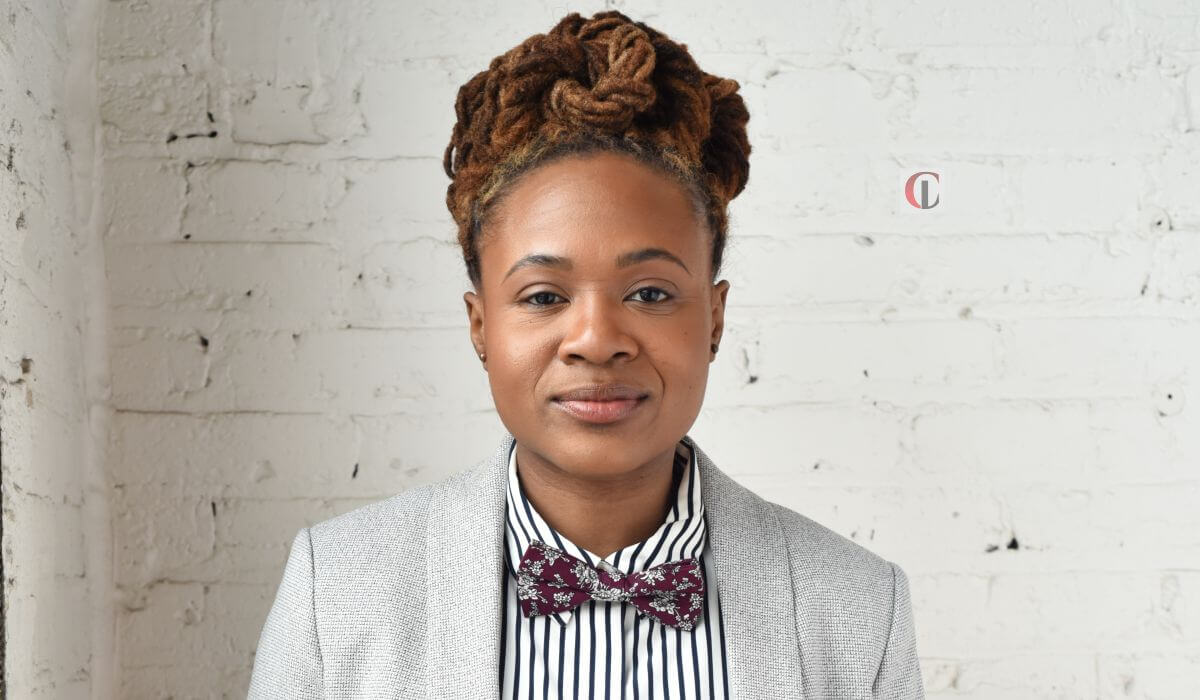The person who has visionary ideas can lay a strong foundation for a necessary change that can alter the course of workings and understandings. Driven with the zeal to make people, places, and products better, Bridget Jones launched her venture, Chisel.
With exceptional abilities combined with focus, engagement, curiosity, and insights, Bridget leads Chisel as the Chief Operating Officer to develop and deliver software to small and mid-sized businesses, local governments, and individuals.
CIO LOOK came across Bridget in its voyage to find “The 10 Most Successful Businesswomen to Watch,” which led to conversation to find out how she leads Chisel to assist people seeking change.
Below are the highlights of the interview.
Brief our audience about your journey as a business leader until your current position at Chisel. What challenges you had to overcome to reach where you are today?
I am a queer black woman invested in democratizing ownership in corporations since 2016. The summer before starting law school at Nova Southeastern, a private university in Davie, FL, I could feel the tension of civil unrest amongst educators, journalists, and social justice advocates.
At the time, police brutality amongst black people was at an all-time high, and I decided to play my part by supporting key players such as; nonprofits, banks, and media personnel foster healthier relationships as a means to bring about more peace. I helped organize a team of 60 professional black community members to perform tasks that provided for the general welfare of this marginalized group. We called ourselves The LIFE group- short for Living In Freedom Everyday. The group was successful in getting 50,000 community members to sign petitions in 8 days. We shifted over 1 million dollars into banks that committed to offering lower interest rates for homeownership in less than two weeks, and over 15 nonprofit organizations publicly supported our mission to bring about community peace. We even had the support of the University of California and the Steve Harvey Show for helping to shine a light on the illegal shooting of Charles Kinsey, a home health aide that was shot in Miami-Dade County while saving the life of an autistic patient who’d wandered into a roadway.
I was able to make this impact through both project management, community organizing, technology, and capital. It didn’t take very long as a first-year law student for me to realize that I care a great deal about social impact in the lives of marginalized people and that in order for me to duplicate that impact that I’d need to study the very tenants that made this work possible. I eventually left law school to study software development, business planning, ecosystem building, and capital raising. This is how I first began Chisel Technologies.
Tell us something more about your company and its mission and vision.
Chisel Technologies is a startup invested in helping social impact companies led by POC, Women, and LGBTQ+ founders make an impact in their communities through technology. We do this through software development, product and project management, and DevOps.
Enlighten us on how you have made an impact in the Think Tanks niche through your expertise in the market?
In 2021, Chisel Technologies has been privileged to work with Research and Development and Technology firms that support technology implementation and efficiencies, such as CATO Institute, SHRM, Black Lives Matter, Black Tech Week, universities, and foundations with varying missions all deeply committed to providing for the general welfare of underserved communities. We’ve supported these think tanks in UX/UI research, design and development, planning, and technical feasibility studies.
Describe in detail the values and the work culture that drives your organization.
Chisel Technologies operates under four main tenants; Transparency, Ownership, Empathy, and Innovation. I think we do a great job at keeping our process as transparent as possible. We work with clients to ensure they fully understand the necessary steps to go from concept to contract. There are obviously parts of our work that we keep internal, but overall I think customers know exactly what to expect within a couple of meetings. Also, I think we have a culture of transparency within the organization. If someone needs to miss a meeting, there’s always at least one person on the team who’s able to let us know what’s going on to pivot properly. We fill in gaps and take care of one another. That level of honesty and transparency in a company is rare.
Chisel takes ownership of our work and process. We take a lot of responsibility when trying to complete projects, which allows us to be a growing brand. Even when we work to create digital media for clients, we own that process and do a pretty good job of allowing the client to be as hands-free as possible. I think empathy is one of our strongest values. I feel the nature of our small team and who we are as individuals shape the organization’s empathy.
We are people first, with lives and things that come up. We give that same grace to our clients. We treat them like colleagues, not just as clients. That familiarity, in my opinion, is what keeps clients on our side. They know that other organizations won’t give them the same graces that we do. The very nature of Chisel is innovation. It’s not just the technology we create that’s innovative; it’s the structure of Chisel itself in how we consider every team member part of our company will also be part of our bottom lines.
Undeniably, technology is playing a significant role in almost every sector. How are you leveraging technological advancements to make your solutions resourceful?
We’re connected to a broader community of award-winning technologists leading the nation in innovative solutions. As soon as we learn of new technology that offers more efficient and cost-effective processes for our clients, we don’t hesitate to implement those solutions to build stronger products and services.
Where do you envision yourself to be in the long run, and what are your future goals for Chisel?
I envision becoming a more well-known thought leader in the world of financial inclusion and resilience for corporations of multiple sizes. I think in the future, Chisel will become a hub for attracting more social impact companies led by minority founders that want to build wealth, scale, and build efficiency while growing both their labor force and company runway.
What would be your advice to budding women entrepreneurs who aspire to venture into the business sector?
Learn as much as you can. Make sure you have a strong personal and professional support system and never be afraid to try new ideas.
To learn more, Chisel hosts monthly Brunch & Learn events every third Sunday from 2p – 5p where we talk about capital formation, project management and wealth building. Check us out at WeWork 660 North Capitol St NW, Washington DC.




